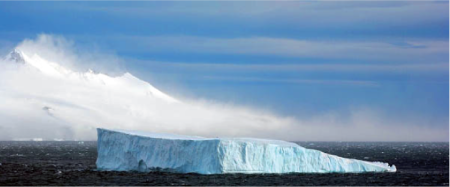| SEARCH |
-

Nov 17, 2015
Reflections on a three-decade legacy
The International Geosphere-Biosphere Programme (IGBP) will come to a close at t...
-
Nov 17, 2015
Use of and access to content on this website
Text and images produced by IGBP in house are free to use with appropriate credi...
-
Nov 12, 2015
Bella Gaia performance and panel discussion to mark IGBP's closure
A musical performance by Bella Gaia will celebrate the achievements and legacy o...
-

Towards Future Earth:
evolution or revolution?
During its three decades of existence, the International Geosphere-Biosphere Pro...
-
A personal note on IGBP and the social sciences
Humans are an integral component of the Earth system as conceptualised by IGBP. João Morais recalls key milestones in IGBP’s engagement with the social sciences and offers some words of advice for Future Earth.
-
IGBP and Earth observation:
a co-evolution
The iconic images of Earth beamed back by the earliest spacecraft helped to galvanise interest in our planet’s environment. The subsequent evolution and development of satellites for Earth observation has been intricately linked with that of IGBP and other global-change research programmes, write Jack Kaye and Cat Downy .
-
Deltas at risk
Around 500 million people worldwide live on deltas, but many of the world's deltas are sinking due ...
-
Climate change: the state of the science
A new data visualization released on the first day of the plenary negotiations at the UNFCCC’s clima...
-
Climate Change:
the State of the Science
Videos now online from the Stockholm public forum to mark the launch of the IPCC's climate report, 2...
Nonlinearities, feedbacks and critical thresholds within the Earth's climate system
Rial J A, Pielke Sr. R, Beniston M, Claussen M, Canadell J, Cox P, Held H, De-Noblet-Ducoudrè N, Prinn R, Reynolds J F and Salas J D (eds)
Doi: 10.1023/B:CLIM.0000037493.89489.3f
Vol 65; Issue 1-2; pp. 11-38

The Earth's climate system is highly nonlinear: inputs and outputs are not proportional, change is often episodic and abrupt, rather than slow and gradual, and multiple equilibria are the norm. While this is widely accepted, there is a relatively poor understanding of the different types of nonlinearities, how they manifest under various conditions, and whether they reflect a climate system driven by astronomical forcings, by internal feedbacks, or by a combination of both. In this paper, after a brief tutorial on the basics of climate nonlinearity, we provide a number of illustrative examples and highlight key mechanisms that give rise to nonlinear behavior, address scale and methodological issues, suggest a robust alternative to prediction that is based on using integrated assessments within the framework of vulnerability studies and, lastly, recommend a number of research priorities and the establishment of education programs in Earth Systems Science. It is imperative that the Earth's climate system research community embraces this nonlinear paradigm if we are to move forward in the assessment of the human influence on climate.

IGBP closed at the end of 2015. This website is no longer updated.
-

Global Change Magazine No. 84
This final issue of the magazine takes stock of IGBP’s scientific and institutional accomplishments as well as its contributions to policy and capacity building. It features interviews of several past...
-

Global Change Magazine No. 83
This issue features a special section on carbon. You can read about peak greenhouse-gas emissions in China, the mitigation of black carbon emissions and the effect of the 2010-2011 La Niña event on gl...
-
INTERGOVERNMENTAL PANEL ON CLIMATE CHANGE:
How green is my future?
UN panel foresees big growth in renewable energy, but policies will dictate just how big.
-
UK:
'The Anthropocene: a new epoch of geological time?'
Royal Society, Philosphical Transactions A




















